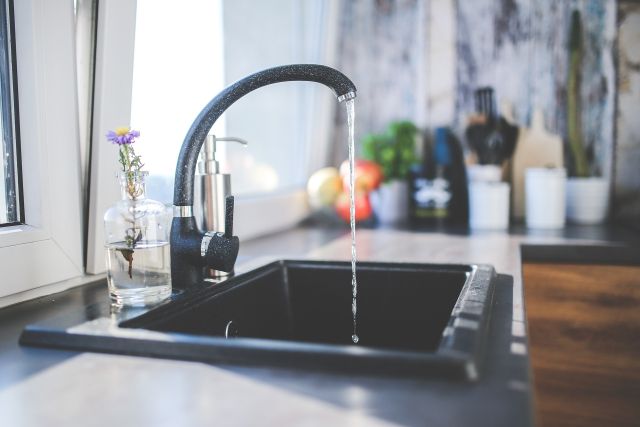No results were found for the filter!
 Water analysis Glyphosate
Water analysis Glyphosate Glyphosate is the main component of several total or broad-spectrum herbicides used primarily in agriculture to kill weeds. It is produced both as an acid and as a salt. Its effect on human health remains controversial: the WHO's...
CHF195.00 CHF295.00
 Water Test 9 in 1
Water Test 9 in 1 With the practical 9-in-1 test strips for pool water, springs, wells and household from aquaself you can monitor the most important water values independently and quickly. Can be used at home or on the go, so you can test the water...
CHF34.90
 Water Analysis Baby
Water Analysis Baby With the Water Analysis Baby, you can quickly and easily determine whether your tap water is suitable for preparing baby food. Because some parameters that can occur in drinking water are particularly dangerous for babies and pregnant...
CHF92.00
Hint!
Test your water with the Water Analysis Combi and find out how good your drinking water is. Your water is analysed in the laboratory for toxic heavy metals, nutrients are also recorded and the water hardness is determined. In addition,...
CHF184.00
The laboratory analysis for your well water determines its relevant chemical ingredients. Through natural and human influences (climate, agriculture, rocks and industry) numerous substances such as nitrate, manganese or ammonium get into...
CHF103.00
Test your water with the Opti water test and thus contribute to improved water hygiene. Your water is examined for toxic heavy metals in the laboratory, nutrients are also recorded and the water hardness is determined. Why a laboratory...
CHF101.00
The water test Ideal tests your tap water, among other things, for corrosion-indicating substances and possible pollutants that can get into your drinking water, especially from the pipe material. Why should a water test with laboratory...
CHF84.00

 Most of the drinking water consumed is preheated. Shower, bath and wash water are also heated. This heating consumes a lot of energy. Saving hot water therefore also means saving energy and money. It's not just about your home. Energy is also used to pump and treat water before it reaches the households. So overall water savings can lead to greater emissions reductions. The less water you use, the less you pay at the end of the month. So if you save in a few months, you can save a lot of money!
Most of the drinking water consumed is preheated. Shower, bath and wash water are also heated. This heating consumes a lot of energy. Saving hot water therefore also means saving energy and money. It's not just about your home. Energy is also used to pump and treat water before it reaches the households. So overall water savings can lead to greater emissions reductions. The less water you use, the less you pay at the end of the month. So if you save in a few months, you can save a lot of money!